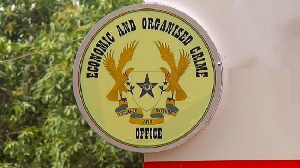Hypoglycemia is a medical emergency that involves an abnormally diminished content of glucose in the blood.
The term literally means "low blood sugar." It can produce a variety of symptoms and effects but the principal problems arise from an inadequate supply of glucose to the brain, resulting in impairment of function.
Effects can range from mild dysphoria (is a profound state of unease or dissatisfaction) to more serious issues such as seizures, unconsciousness, and (rarely) permanent brain damage or death.
The most common forms of hypoglycemia occur as a complication of treatment of diabetes mellitus with insulin or oral medications. Hypoglycemia is less common in non-diabetic persons, but can occur at any age.
Among the causes are excessive insulin produced in the body, inborn error of metabolism, medications and poisons, alcohol, hormone deficiencies, prolonged starvation, alterations of metabolism associated with infection and organ failure.
Hypoglycemia is treated by restoring the blood glucose level to normal by the ingestion or administration of dextrose or carbohydrate foods. It is often self-diagnosed and self-medicated orally by the ingestion of balanced meals.
In more severe circumstances, it is treated by injection or infusion of glucagon. Let us look into more detail some of the practical ways of preventing hypoglycaemia.
- Taking medications without meals: The objective of administering diabetes drugs is to help lower blood glucose levels in patients. The drugs go a long way to help the body control the glucose that gets into the blood after a meal. These drugs, therefore, aid the body to do what its natural insulin can no longer do well.
- Fasting: When fasting, either for religious reasons or otherwise, the body goes into a very low energy state. Blood glucose levels drop below normal.
- Taking alcohol: Alcohol intake causes a false state of energy in the body which leads to hypo in the diabetic patient shortly afterwards.
- Too much exercise: Exercise for the diabetes patient can serve as both a very good and bad companion, depending on how it is done. When you exercise regularly, you will see a lot of improvement in your blood sugar levels.
Taking drugs without meals only causes the reduction of the already existing glucose in the blood, which may lead to hypoglycaemia, popularly known as “hypo”.
It is important to combine your drugs and meals well. Following your pharmacist’s instructions on how to take your drugs with regard to meals is a must. It can also be dangerous to take medications and expect to get food within the expected time period. The best thing is to get the food ready before swallowing those pills.
This can reduce the energy level needed for the body cells to function well. The brain, with such low energy level, has no option than to shut down. The outcome of this situation is a condition of coma.
If assistance to gain medical attention is not received immediately this happens, you can die. It is, therefore, not advisable, nutritionally, for the diabetic patients to engage in fasting activities.
When taken on an empty stomach, alcohol will prevent your liver from releasing stored glucose into your blood stream. The end result of this is “hypo”.
Doing too much exercise will push your body into using so much energy and thus lead to hypo. The diabetic should not exceed 30 minutes per session when exercising.
What I would advise is that you do the exercise on a daily basis. The benefits can then buildup from day to day and therefore give you good health and vitality at all times.
Start slowly and make steady progression on intensity with time. Dress well so that you do not get wounded or bruised accidentally during your exercise. Wear thick socks and comfortable boots when going for that walk.
The writer of this article is a dietician & author of the book titled: “Diet, Health & Wellness.” For copies, Contact: 0244090262, Go to www.wiseletsa.com for more free information on eating for health and wellness.












